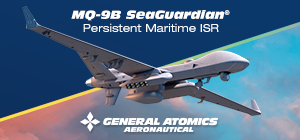On June 5, Rolls-Royce Deutschland and ITP Aero signed a Memorandum of Understanding (MoU) to explore a partnership to design, develop, manufacture and support a Wingman Engine, a state-of- the-art powerful solution for large remote carriers in the 8-10t class. As part of the MoU signature ceremony, a mock-up of a Wingman Engine concept was unveiled. The MoU between Rolls-Royce Deutschland and ITP Aero is intended to foster a German-Spanish approach and has the ambition of providing an ITAR-free, European power and propulsion solution that underpins the unique engine design and manufacturing capabilities in both countries. Indeed, roughly 90% of technologies that will be exploited to design, engineer, and produce the new engine are existing, and most of them available in-house. In fact, both Rolls Royce Deutschland and ITP Aero have been investing for years in civil and dual-use technologies. René Bernstein, Vice President Defence Germany at Rolls-Royce Deutschland stated: “We are delighted to have unveiled our Wingman Engine concept, which we have invested in over the past several years to ensure customer and operational requirements for future large remote carriers can be met. Here at Rolls-Royce Deutschland, we continue to strive to develop innovative and cutting-edge technology to generate confidence in national capabilities, and we’re proud of our approach of utilising proven civilian technology for military programmes.” As of today, the Wingman Engine concept builds on the Advance2 core demonstrator which currently powers commercial and military platforms, and it is known as the most powerful and efficient in its class. The Advance2 core, the backbone of the Pearl business jet engine family, has already proven its world-class competitiveness and has been selected to power aircraft such as Dassault’s Falcon 10X, Gulfstream’s G700 and G800, and Bombardier’s Global 5500 and 6500. Hence, the Wingman Engine will leverage on this experience and will result into an affordable and reliable solution based on COTS (Commercial Off-The-Shelf) technologies. René Bernstein underlined that “the use of market-available technologies with a stable value chain reduces the overall risk and controls the development and product costs of platforms serving our security. In turn, this strengthens the international competitiveness of such a system in the long-term and building on available advanced technology will enable the industry to move fast to make such complex products market-ready in uncertain geopolitical times.” Following the signature of the MoU and after the workshare will be agreed, Rolls-Royce Deutschland and ITP Aero will engage in a maturing concept phase that will last between 18 and 24 months. Afterward, support from Ministries of Defence (MoDs) and/or governments will be required to trigger the development pathway of a real product, tailored to specific drones – likely in the context future generation air combat systems such as SCAF/FCAS. Such a development roadmap is estimated to take up to six years, including certifications.
They Will Make the Wingman Fly
05/06/2024 | Marco Giulio Barone








